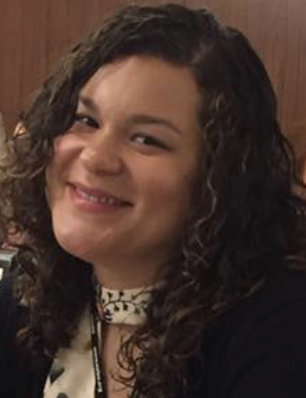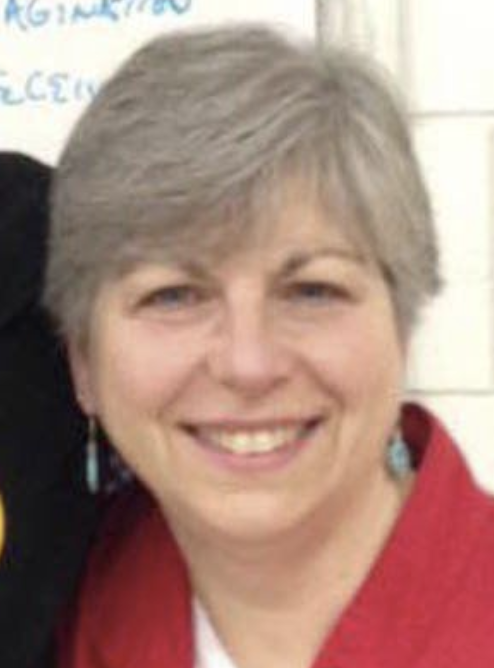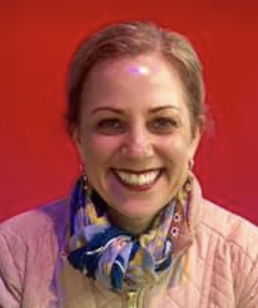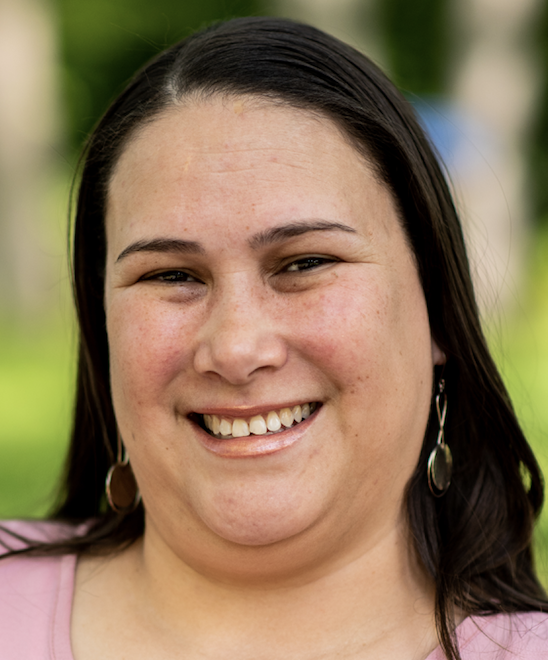
Evelyn Reyes, Senior at John D. O’Bryant High School, Student Representative to the Boston School Committee, Boston Student Advisory Council Leadership Team, Youth Organizer for Youth on Board.
I have been concerned about parents who have to work and leave their kids at home. The city and Boston Public Schools are offering food, but I’m worried about families where parents have to work and kids can’t make it out by themselves to get food.
There’s going to be a lot of learning loss. It’s not just that, but parents are feeling frustrated because they’re unable to do things for their kids. I’m lucky because my mom was a teacher. She has an idea of what to do with my two little sisters (age 5 and 10). She knows what work to look for, how to go about showing them a new idea. But she has moments of frustration. If my mom is having a hard time, I can’t imagine parents who have to work with their one, two or three jobs, those who don’t have resources, or don’t know how to use them. And what happens if mom and dad have to work and one of them gets sick?
The long-term effects of this are worrying because everything is so uncertain. I’ve heard seniors say if fall semester gets canceled, they’ll defer a year. The Class of 2020 might struggle in college. And what happens if we have to go in and out of quarantine?
This situation is unusual in every way shape and form. I think it’s important for all of us to take a step back and for every institution to recalibrate and understand people are not really doing OK, need support, and that may look different for everybody. I think we’re all doing as well as we can in such an unprecedented situation. Certainly if ever there was a time for partnerships between community and institutions, now would be time. This is a moment where we would expect our leaders to have our backs. So it’s a good time to reevaluate our support of our leaders and really figure out if they’re the people we want or if they’re not.

Suzanne Federspiel, CPS Board Member and Brookline School Committee Member*
I understand how difficult it is for families of school age children, many of them trying to work from home while ensuring their children are safe, reasonably happy and engaged in constructive, educational activities for at least part of the day.
This is an opportunity for teachers to be creative, for students to be creative, to have time for in-depth explorations and to look at deep questions and project-based learning. We also have to be aware that the kids are learning every day by watching how the adults around them are reacting and taking all this in.
They’re learning from adults how to deal with the stress and anxiety. It’s a time to take care of one another and to model that behavior for our children and students.

Roberto Jiménez Rivera, CPS Board Member and Chelsea School Committee Member*
As part of my day job I engage with many counselors from well-resourced schools across the country. Through recent conversations with them, I’ve heard about the steps their schools are taking for remote learning, and I worry about the impact this will have on the so-called achievement gap. While districts like Chelsea are focused on feeding our students (26K meals and counting!) and making sure they don’t fall behind, wealthy schools are able to allocate their resources to creating the best online learning environment possible for their students.
On the School Committee side, we’ve had to postpone our budget process, and I’ve been thinking about the economic impact of the pandemic on our budgets. How will lower state revenues affect the Student Opportunity Act funds we worked so hard for? Our elected officials cannot have the most vulnerable students across Massachusetts be the ones who pay the price of this pandemic. The law requires equitable funding, and it is also the right thing to do. Equity must be the top priority, at all costs.
*Note: Suzanne and Roberto speak for themselves and not on behalf of their school committees.

Marianela Rivera, Table Coordinator for Greater Lawrence Education Justice Alliance, former vice chair of the Lawrence School Committee, CPS Board Member.
The COVID-19 pandemic has impacted the world in many devastating ways; some more noticeable than others. Not only has the pandemic acted like a spotlight that is revealing all of the inequities in education, but it has also acted like a catalyst to widen the opportunity and achievement gap. The digital divide and a system that caters to “the haves” is limiting the access of the “have nots” to their education. While DESE has made recommendations for enrichment, affluent school systems with 1:1 student to technology ratios have moved toward remote instruction of new curriculum. Cities like my hometown of Lawrence where the digital divide is gaping wide are struggling to provide students with access to enrichment opportunities. There have been attempts to provide students with Chromebooks and wifi, however, given the inequality between school systems providing enrichment vs new material, students will be left behind.
We also must be cognizant of the fact that most of our students struggling in poverty are struggling to get their most basic needs met during this pandemic. In order for students to be best prepared for learning, their physiological and safety needs must be met first. Next, they must feel loved and nurtured. This must be the focus for our families at this time. Any remote learning offered to students should be equitable and with a focus on student’s social emotional needs, in order to best prepare them for optimal learning.
The school closures as a result of COVID-19 will widen the achievement gap, and as a result, poor schools and systems that serve students of color will be disenfranchised under the receivership law. We must eliminate high stakes testing and the use of standardized test scores to disenfranchise communities of color now more than ever. Education advocates in Lawrence have begun organizing towards fighting for these changes. We organized an online campaign to delay decision making for the spending plan for the Student Opportunity act, which was effective. We plan on continuing these efforts until we get rid of testing and amend the laws that punish communities of color for the inequities built within the system.

Ricardo Rosa, Associate Professor of Public Policy, UMass Dartmouth, CPS Board member, New Bedford parent, organizer.
This crisis has provided us with great clarity that we cannot return to what so many thought was the normal operation of our schools. We need to institute policies that prioritize mental health in our schools. Mental health has always been a pressing issue in New Bedford and other communities. The COVID-19 crisis has created the conditions for great uncertainty for many of our families for a great deal of time to come. This is particularly true for communities of color and those who are living in poverty.
Families, especially children, are vulnerable given the severe economic implications. It is time to implement a robust program that takes seriously the mental and emotional wellbeing of students without re-inscribing the power of categories over people. This means that we need to make a concerted effort towards eliminating the pressures associated with high-stakes tests and test preparation in our classrooms and operational procedures.
It means that we need to seriously invest in adjustment counselors, psychologists, social workers, school family liaisons, wrap-around staff, nurses and other medical care workers in our schools. It means that we need to slow our educational system down so that healthy relationships can be developed.

Beth Kontos, President, American Federation of Teachers Massachusetts, CPS board member, educator.
Our lives at AFT MA have shifted to totally online work. We are conducting trainings, doing bargaining, and having our executive board meetings online. We will even have our convention online in early May. We are here to support our educators, public librarians, and our nurses through this trying time. Our educators have switched to distance learning.
It’s not a perfect system since so many of our students do not have the resources they need. But we are giving it our best effort. I have to give a shout out to all the educators and support staff who are providing food to our students, since they are missing out on breakfast and lunch at school. We are sharing information about food availability from our partners at Project Bread via social media, and the schools have shared the resources also. We care about all aspects of our students’ lives.
We understand that our students, educators, and entire communities are living through a very stressful time. One stressor we worked hard to eliminate is MCAS for this year. It’s good that the legislature passed and Governor Baker signed a bill to cancel MCAS. Next we will work to have MCAS waived for next year as well. For that matter, let’s eliminate it completely! We spend about $30 million a year and countless hours of classroom time to conduct high-stakes standardized tests that reflect more about a student’s socio-economic status than their ability to learn. It time to be honest about what these tests are used for.

Suzie McGlone, 6th grade history teacher, Orchard Gardens K-8 Pilot School, Boston.
Though this pandemic is serious and real, I teach children who are only in 6th grade. I don’t want them to be fearful, and I don’t want to lie to students. That’s the way I teach history as well. I gave them all my number and told them to call me, or have parents call me. They gave me their cell phones. I said, “Tell your families if you need anything call me. I don’t have a million dollars, but I know people and can figure things out.” I wanted to make sure students and families knew I was there and willing to help.
I’m good at taking care of myself. I don’t have kids, so my life is more flexible than other teachers. I don’t want to say that all teachers should do this.
I launched this idea called “Teach from Home.” I’ve had people from the Boston community, who more closely represent my students, teaching my students with me through Zoom. Writer and Coretta Scott King Award honoree Alice Faye joined my sixth graders and me to discuss her book: Memphis, Martin, and the Mountaintop. We had been preparing all week to highlight advocacy among our leaders for essential workers, like the ones Dr. King went to speak to and advocate for 52 years ago. Brianna Millor, from City councilor Michelle Wu’s office, also joined us. She was amazing and energetic and talked to my students about advocacy. I asked outstanding teacher and teacher leader Kristina Reeves-Barber, who grew up in Boston and lived in the Academy Homes, to come in tell her life story, talk about something she has a passion about. Poor People’s Campaign Savina Martin will join us in the coming weeks of classes as well. (If you are interested in speaking with my students and me about advocacy at any and all times in history, please let me know!)
I’ve realized there are so many people in the community who my students should have been exposed to earlier. Things that go on in school have an automatic value placed on them. I wanted my students to see the value of all of the people in the community who have the passion to make these amazing accomplishments. Not everybody starts out with a perfect life, but if they have a passion, they can make a difference!

Yahaira Lopez, parent organizer and founder of Autism Sprinter, CPS Board Member.
As a parent and organizer the most pressing thing on my mind is the mental health of our students and their families who have been faced with layoffs or being furloughed from their jobs. I’m also concerned about families who have children with special needs who are not getting their needs met through education and services. The stressors are increasing for many families who are feeling helpless. School districts are struggling to meet IDEA. Meanwhile this global pandemic has exposed the inequities plaguing our governing systems with their flawed bureaucracies.
I’m the founder of Autism Sprinter, and we have launched our Parent Power Facebook Live Series, which showcases powerful voices of parent leaders throughout Massachusetts. We find that during these times, it is imperative for families to use some of their time in researching and planning for solutions to help their families get back on track. This series has been designed to help parents in marginalized communities gain access to more resources through an online platform during this pandemic. It’s each Tuesday from 7-8pm.
We are showcasing parents who are experts in all things related to parenting and servicing children with disabilities. The series began Tuesday, April 7th, with our kickoff topic on emotional stability and mood regulation. Our series is to help empower more parents to become the leading agents of advocacy in the disability space through learning tools to help support them, but most importantly how to self-advocate for their children needs. You can find us at www.facebook.com/autismsprinter

